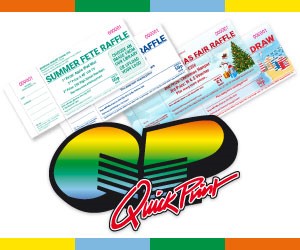A 100 club is a form of private lottery that’s simple to set up and easy to maintain. You don’t need any special prizes or equipment, and it doesn’t take hours of planning – just some willing participants who are prepared to have a bit of a flutter in the name of a good cause.
Subscribers buy numbered tickets that are entered into a draw at regular intervals – usually once a month.
Typically, 100 tickets are available (hence the name) but you can vary the number to suit the size of your school, with 50 and 200 clubs also being popular choices. Players (parents, teachers and friends of the school) pay a fixed subscription for their number (or numbers), and a percentage of the profits makes up the monthly prize(s), with the remainder going directly to PTA funds.
The key to a successful 100 club is to publicise it clearly and consistently: leave a dedicated space for it in your newsletter as a constant reminder; mention it on your website and social media; and announce the winners each month to encourage more people to sign up.
Step-by-step
- Eight weeks before: Establish how many parents and carers would be keen to take part. Use your social media channels and PTA newsletter to generate a buzz around the idea. Highlight the fact that it’s an easy way for them to support the school and that there’s a chance of winning a cash prize every month. Once you’ve determined the level of interest you can then work out what size club you’ll need. Decide if you are going to use the PTA bank account or open a separate account to make it easier to check who has paid. Set up a waiting list for parents who want to take up numbers when they become available.
- Six weeks before: Decide whether to run your 100 club as a ‘private lottery’ or as a ‘small society lottery’ as different rules will apply. Agree on the minimum time commitment for participants (usually one year), running concurrently with the academic year from September to September. Choose a payment method for participants: payments are usually made by a monthly standing order, or you could accept a single cheque payment covering one year. Decide how much to charge, the number of winners per month and how much you will give as prizes. Draw up a set of rules to explain everything clearly.
- Four weeks before: Circulate letters inviting people to join your 100 club. Include a sign-up form, standing order instructions and a set of rules to be signed and returned – download templates at pta.co.uk. Once forms are returned, create a numbered spreadsheet of participants, including their name, address and payment method. Ensure your spreadsheet is GDPR compliant.
- During the week before: Check PTA bank statements to verify payments have been received. If there are any issues, chase these up with participants.
- On the day: It’s important that the winning number(s) are drawn in public. Use a random number generator and ask if the draw can be held as part of an assembly or staff meeting, or draw it live on Facebook. Publish winners’ names (if permitted to do so) on social media, in the school newsletter and on the school website.
- After the draw: Payments to winners should be made promptly, either via cheque or bank transfer. If you decide to pay the winner in cash, it’s advisable to have a member of staff present to witness the exchange.
Tips & advice
- Securing participants: Take advantage of captive audiences at parents evenings, sports days and PTA events to recruit members. If these aren’t running this year, don’t forget communication channels such as newsletters, emails, websites and social media. These are all excellent places to advertise, providing the type of lottery you run permits this. When families leave the school, you will need a strategy for keeping numbers topped up, so organise extra drives around those times to keep numbers consistent.
- What to charge: Most PTAs charge £12-£24 per number, per year, which is equal to £1-£2 per month. Generally, 50-60% of this will go into PTA funds, and the rest is paid out in prize money, often with a first, second and third prize. Some PTAs offer a higher percentage of winnings for their summer and Christmas fair months to up the stakes, and some don’t draw during July and August. Subscribers can buy more than one ticket, but you may wish to put a limit on how many numbers per family/household, to give more people a chance to play.
- Rules: Your rules should ensure participants are aware of the purpose of the lottery, how it is run and by whom, when each draw takes place and how winners’ details are published. You should also detail what happens in the event of a dispute, of if a participant misses a payment or a winner can’t be contacted, and so on.
Downloads
- Download our editable sample set of rules, terms and conditions and application forms
- Download a print-friendly PDF version of our step-by-step guide to a 100 club
Licensing
There is no specific legal definition in the Gambling Act for a 50, 100 or 200 club. These clubs exist to promote lotteries for a ‘good cause’ (lotteries cannot be run for private or commercial gain). The rules that apply depend on how you promote your lottery. Typically, 100 clubs are small in scale and operate under the rules of a ‘private society lottery’ or a ‘small society lottery’.
Private society lottery: Private society lottery tickets must only be sold to members (check your constitution to verify membership) and to people on the premises used in the administration of the society (ie your school). Private lotteries must comply with advertising conditions, which state that ‘no advertisement may be displayed or distributed except at the society premises, nor may it be sent to any other premises’. The Gambling Commission says that sending a letter home to parents constitutes promoting or advertising a lottery and would therefore not be permitted. Given that there is no provision in law for a private society lottery, it’s imperative that you have a strict set of rules and procedures in place in case a dispute should arise.
Small society lottery: You do not need a licence from the Gambling Commission, however you will need to register with your local licensing authority, who may want to see a set of rules before considering an application. A financial return must be submitted within three months of the latest draw. With a small society lottery, you can sell tickets to anyone aged 16 and over, not just those within the school community.
- For detailed advice on what you can and can’t do, visit gov.uk
- See also our licensing guide for more detail
100 Club success stories
John Carmichael, PTA member, Stowting CofE Primary, Stowting Hill, Ashford, Kent (97 pupils): ’The 100 Club has been running for about ten years, so it’s well established. We have about 50 numbers sold – approximately two thirds of the families in the school, which is a reasonable uptake. The Club is promoted at the Christmas and summer fairs, and details are included in the induction packs which are given to new parents. Each number costs £2 per month which can be paid for by cash, cheque or direct debit monthly or annually. I check the monthly bank statement to verify that all the direct debits are in, then look at the membership to see if any renewals are due. Once these accounting matters have been concluded, I make the draw in the playground with one of the parents. Three numbers are drawn and the prizes are 20%, 10% and 5% of the income. From a legal stand point, our 100 Club falls within the category of private society lottery, therefore no licence or registration is required. Each PTA member receives a fact sheet giving a brief description of the rules and a membership application form which provides me with members’ contact details and, should the 100 Club be inspected, provides proof of membership of all participants. Our small school has around seventy families and the 100 Club raises £600-700 a year – around 10% of our total annual income.
Marina Hodder, PTFA Treasurer, Offwell CofE Primary, Honiton, Devon (103 pupils): ‘Our 100 Club has only been running since last September; we are a small school, and are pleased to have over 40 entries in the draw each month. Winners are drawn on the last Friday of each month, and if that falls in the school holidays we draw it on the first day back.
The 100 Club as a private lottery, and is open only to friends and families of the school, therefore there was no need to contact the Local Authority or file regular financial returns. Participants have to complete and sign a ‘terms and conditions’ agreement form before they can enter. We keep a record of all money paid in and how much is paid out, and record who the winners are each month and how much they have won. People can choose whether to pay monthly or annually and receipts are given each time money is paid in. Winnings are paid in cash. At the moment the 100 Club raises £20 a month.’
Further inspiration
- See our step-by-step guides for events
The above is intended as guidance only. We recommend that you contact the relevant organisations with specific reference to insurance, legal, health and safety and child protection requirements. Community Inspired Ltd cannot be held responsible for any decisions or actions taken by a PTA, based on the guidance provided.










.gif)